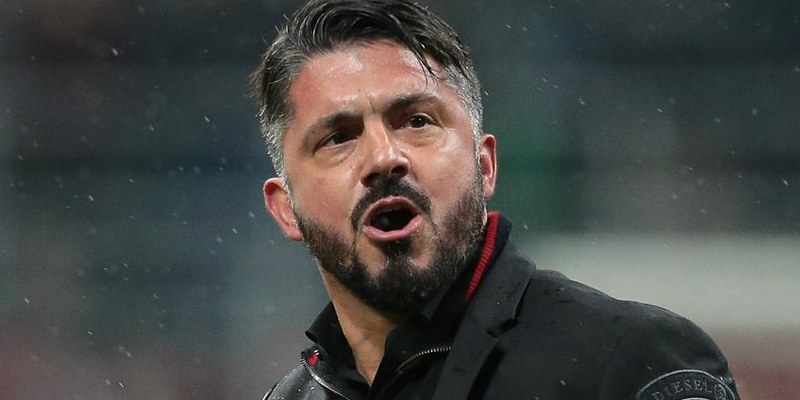Gennaro Gattuso, the former midfield dynamo known for his tenacious playing style and equally impassioned managerial approach, is poised to take the helm of the Italian national football team, according to renowned transfer expert Fabrizio Romano. This appointment comes after a period of uncertainty surrounding the Azzurri’s leadership, following Luciano Spalletti’s recent departure. Romano, a highly respected source in the football world, reports that the agreement is all but finalized, with only minor details remaining before the official announcement. Gattuso’s anticipated arrival marks a significant shift in the Italian national team’s trajectory, promising a potential return to the gritty, determined football that has historically characterized the Squadra Azzurra.
Gattuso’s managerial career, though marked by both successes and setbacks, has consistently showcased his unwavering commitment and fiery passion. His style, often described as intense and demanding, echoes the spirit of his playing days, where he was a key component of AC Milan’s dominant midfield. This intensity, coupled with a tactical acumen honed through years of experience, makes him a compelling choice for the Italian national team. He has tasted success at club level, particularly with Napoli, guiding them to a Coppa Italia title. However, his managerial journey also includes periods of struggle, notably with Valencia, where his tenure was marked by inconsistent results and ultimately ended in a mutual parting of ways. Despite these challenges, Gattuso’s resilience and unwavering belief in his methods have remained constant, solidifying his reputation as a manager who extracts the maximum from his players.
The Italian Football Federation’s (FIGC) decision to appoint Gattuso appears to be a calculated gamble. They are choosing a manager who embodies the traditional Italian footballing spirit – a blend of tactical discipline, unyielding determination, and a relentless pursuit of victory. This appointment also suggests a desire for a fresh start, a departure from the more recent, possession-based approach favored by previous managers. Gattuso, known for his preference for a more direct, combative style, could inject a renewed sense of urgency and aggression into the Italian national team. The potential impact of this stylistic shift remains to be seen, but it undoubtedly brings an element of intrigue and anticipation to the future of the Azzurri.
The timing of Gattuso’s potential arrival coincides with a critical juncture for Italian football. The national team, having missed out on consecutive World Cups, is in dire need of rejuvenation. The pressure to qualify for the upcoming major tournaments is immense, and the FIGC is clearly banking on Gattuso’s leadership to steer the team back to its former glory. His experience in managing high-pressure situations, both as a player and a manager, could prove invaluable in navigating the challenges that lie ahead. Moreover, his inherent understanding of Italian football culture and its inherent demands will be an asset in galvanizing the players and fostering a strong sense of national pride.
However, Gattuso’s appointment isn’t without its potential downsides. His sometimes volatile temperament and confrontational style have occasionally drawn criticism. Questions remain about his ability to manage a squad of high-profile players with varying personalities and playing styles. His tactical flexibility will also be under scrutiny, particularly given the evolving nature of modern football. Whether he can adapt his preferred approach to suit the strengths of the Italian national team and counter the strategies of their opponents remains to be seen. The success of his tenure will hinge on his ability to strike a balance between his passionate approach and the need for tactical pragmatism.
Ultimately, the appointment of Gennaro Gattuso as the head coach of the Italian national team represents a bold and potentially transformative decision. It’s a move that signifies a return to the traditional values and fighting spirit that have historically defined Italian football. The FIGC is entrusting the future of the Azzurri to a manager who embodies those values, a manager who is unafraid of challenges and who demands the same unwavering commitment from his players. While the road ahead may be fraught with obstacles, Gattuso’s arrival brings a renewed sense of hope and anticipation for the future of Italian football. Whether he can successfully navigate the pressures and expectations that come with this prestigious role remains to be seen, but one thing is certain: the Italian national team under Gattuso’s leadership promises to be anything but dull.


